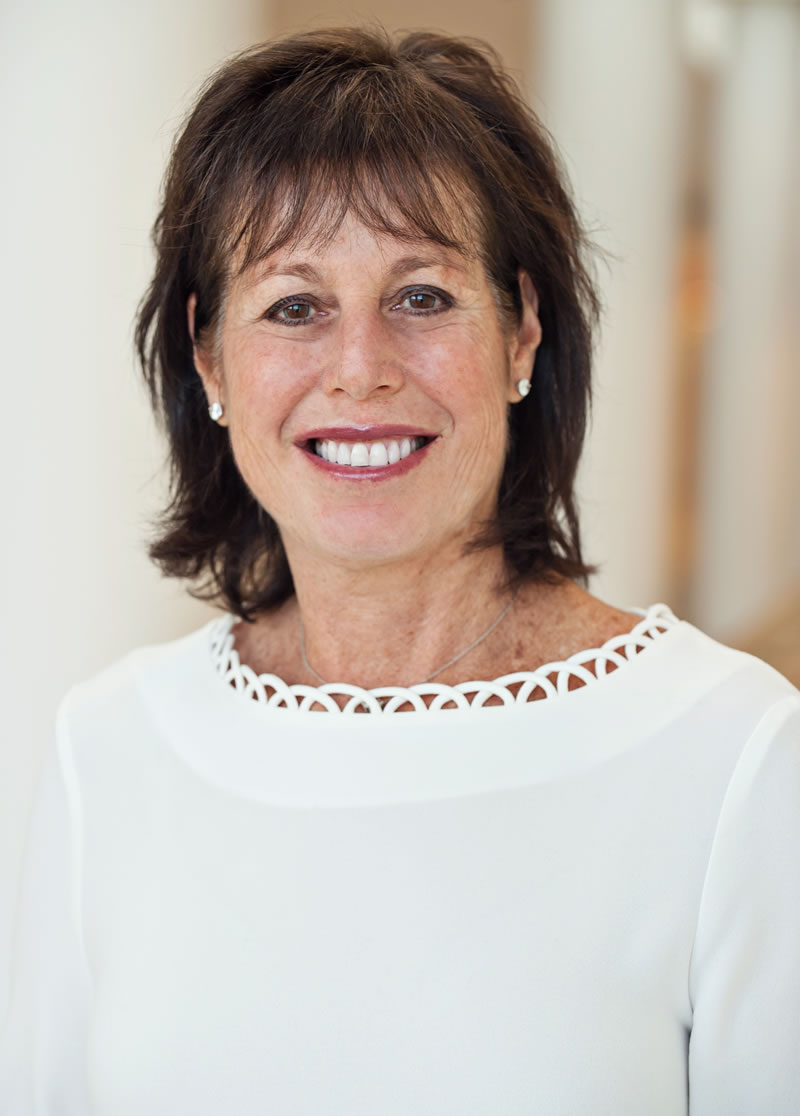Elizabeth Schubiner

"The dream for the cancer center is to end these insidious diseases."
Elizabeth Robinson Schubiner received her B.A. in American Studies from U-M in 1980 and her M.B.A. from the Ross School of Business in 1982. Liz has worked in a variety of positions in different industries, including brand management at the Stroh Brewery Company; assistant to the president at Affina, a database management and research company; and COO at Hillel Day School in Farmington Hills, Michigan.
Liz serves on the Community Relations Board at Jewish Federation of Metropolitan Detroit and is vice president at Knollwood Country Club. Previously, Liz has served on fundraising committees and on the Education Division at JFMD, has co-chaired two Ross School of Business Class reunions, and was a Hillel Day School board member. She is an ovarian cancer survivor and was treated at U-M.
Describe your interest in the Rogel Cancer Center. What drew you to being on the National Advisory Board?
My interest in being on the National Advisory Board has to do with my own personal experiences with cancer. My mother passed away from pancreatic cancer in 2010 and her father, my paternal grandfather, also passed away from pancreatic cancer. It wasn’t until my mother was diagnosed that we realized there was a genetic component. A year-and-a-half after my mother’s death, I was diagnosed with ovarian cancer and treated here at the University of Michigan. I had the most amazing care. I had surgery and went through chemotherapy treatment. Having been a Wolverine, I just felt like it was the most special place. As part of the Advisory Board, I wanted to be able to give back to the University in a meaningful way.
What are your hopes for what the Rogel Cancer Center can accomplish in the next decade?
The dream for the cancer center is to end these insidious diseases. Short of that, the hope is to make as many inroads as possible to being proactive and finding cancer at early stages so people don’t have to suffer. The other hope is that treatments become better, whether that is advancing individual targeted therapies for cancers; researching cancers that people have not been able to find answers for, like pancreatic cancer; or improving early detection for something like ovarian cancer. It doesn’t matter what kind of cancer — they are all so insidious. Our hope is that people don’t have to go through what my family and other families have had to go through.
How do you envision the National Advisory Board contributing to that success?
It’s exciting to be a part of the first board of the cancer center, and I think our role initially is to be educated, to learn about all of the things going on in the laboratories and the clinics, and get to know some of the staff. And because I live in Michigan and it’s in my backyard, I see my role as friendraising -- getting people who have had experiences with cancer to see what is going on and what strides are being made. Ultimately, I want them to also become friends of U-M, and hopefully that means bringing commitment of time or dollars into helping the cancer center grow.
